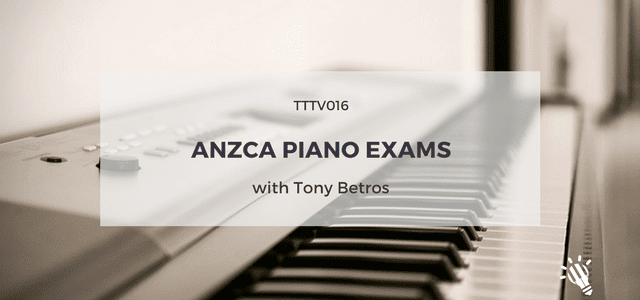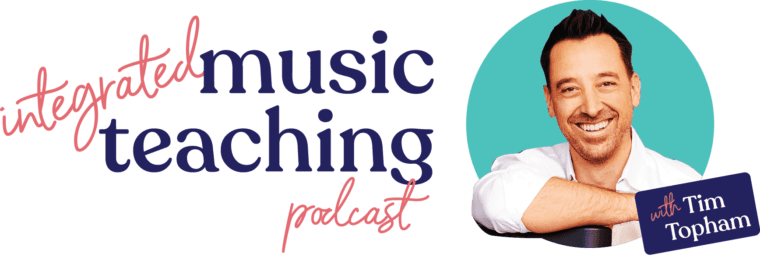
This is the first in a multi-part series taking a look at the main exam boards around the world. Piano exams play a big role in piano teaching in many countries. Even if you’re in country where exams are less popular, there’s a lot to be learned by looking at the different exam boards and how they structure their assessments. This first episode looks at the ANZCA piano exams, with our guest, Tony Betros.
ANZCA piano exams take a unique, flexible and modern approach to formal assessments. As well as classical piano exams, they also offer a modern piano syllabus which includes improvisation and allows the use of backing tracks, and a performance only exam option. On top of that they also offer a duet syllabus, and a keyboard syllabus.
One of the fantastic elements of their exams is their option of one “free choice” piece. This allows the student and teacher together to choose any other piece that’s at an appropriate level for the grade, even if that’s one they’ve composed themselves!
Whether you use an exam system or not, I really think you’ll get a lot out of today’s podcast!
Type ‘TT’ in the promo code box when ordering from the ANZCA website for 20% off your order. This offer is valid for 2 weeks only, so get it quick!
Australian and New Zealand teachers can also get a free teacher starter pack by emailing admin@anzca.com.
There are a lot of podcasts you could be tuning into today, and I’m grateful that you’ve chosen mine.
Being a full-time teacher myself, I know how busy teachers are and how much time, effort and passion we put into our students. Sometimes, the last thing we want to do in our time off is listen to more piano teaching stuff! So, well done for using this time for self-improvement.
Whether you’re at the gym, on the bike or in the car, I know that you and your students will get lots out of what you learn in the long run. Just make sure you try out some of the ideas before they get lost in the business of your next lessons.
If you enjoyed today’s show, please share it by using the social media buttons on the left of the page.
Also, kindly consider taking the 60-seconds it takes to leave an honest review and rating for the podcast on iTunes. Reviews are extremely helpful when it comes to show’s ranking and you can bet that I read every single one of them personally.
Lastly, don’t forget to subscribe to the podcast on iTunes, to get automatic updates every time a new episode goes live.
Was there anything about their system that surprised you? Do you have questions for Tony that weren’t covered in the show? Leave a comment below, I’d love to hear your thoughts!

